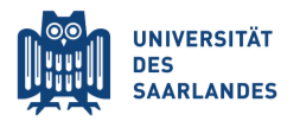Data Driven Drug Design (Prof. Volkamer)
March 30, 2023 2023-04-13 1:33Data Driven Drug Design (Prof. Volkamer)
About us
Drug development is a complex, time-consuming and cost-intensive process. It is estimated that only about 10 percent of drug candidates make it to clinical use after Phase I. In addition, we are facing a global increase in infectious diseases, and pathogens are increasingly developing resistances, posing a serious threat to our health. At the same time, data has never been produced so rapidly, and data-driven approaches, including artificial intelligence, have the potential to revolutionize the drug development process, enabling developing more effective drugs more quickly.
Our research therefore leverages the growing amount of experimental, chemical and biological data available (e.g. ChEMBL, PubChem, ToxCast, PDB), increasingly complemented by synthetic data (e.g. AlphaFold structure elucidation), as well as powerful computational algorithms and architectures, to develop computational methods that significantly support the drug design process; with the goal of improving human health and well-being.
Head of the Group

Prof. Dr. Andrea Volkamer
Andrea Volkamer recently started her group as full professor at Saarland University in ‘Data Driven Drug Design’ (2022). Before she was an assistant professor in ‘Structural Bioinformatics and in silico Toxicology’ at the Institute of Physiology, Charité Universitätsmedizin Berlin. After earning her PhD from the University of Hamburg (2013), with focus on computational active site and druggability predictions, Andrea Volkamer worked at BioMedX Innovation Center, Heidelberg, as a PostDoc researcher on tools to assist the development of selective kinase inhibitors in collaboration with Merck KGaA (2013-2016). Her main research focus is method development and application at the interface of structural bioinformatics and cheminformatics, with particular interest in structure-enabled machine learning approaches, applied in the context of computational drug design and in silico toxicology.
Our Projects
At Volkamer Lab, we develop methods at the interface between structural bioinformatics and cheminformatics, mostly applied in the context of computer-aided drug design. On one hand, we investigate structure-based methods for active site assessment, including binding site comparison, pharmacophore elucidation and off-target prediction; pocket-centric fragment-based design as well as deep learning enhanced virtual screening pipelines. Besides target-independent approaches, we focus our developments on kinases, one of the major classes of therapeutic targets. On the other hand, we study ligand-based methods, including machine learning methods for activity and toxicity prediction and apply them in translational projects.
Special focus is set on integrating novel techniques taking the applicability and reliability into account, and the interpretability of deep learning methods. One goal thereby is the establishment of alternative in silico methods to determine the risk of compounds and their harmful effects on humans, animals, plants and environment. Additionally, we continuously work on the integration of the two research areas of structure- and ligand-centered projects, i.e., focusing on structure-informed machine learning approaches applied primarily to kinases. In this attempt, we are integrating the physical aspects into molecular modelling (e.g. molecular dynamics simulations and free energy calculations) to better sample the drug target interactions.

